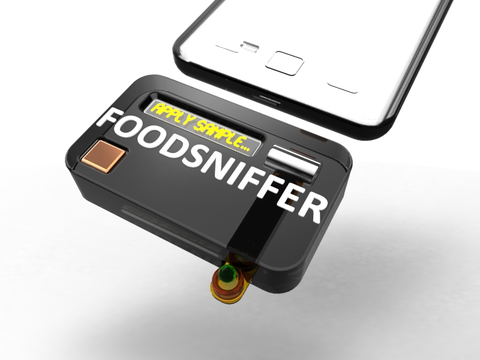Victoria Mindova
In less than 10 years, the world has experienced several health crises that stemmed from the food industry. Bovine spongiform encephalopathy was the cause for the "mad cow disease". At the height of the epidemic, the consumption of brain, eyes, tonsils, spinal cord and intestines of cows could be deadly to humans.
The controlling bodies examine only 1% of the food we put on the table every day.
Then followed the mysterious bacterium E. coli which caused the death of 38 people and infected 3,228, who had severe symptoms. After several weeks of speculation with the source of the bacteria, the German authorities announced that they had detected the problem. The bacterium had been found in contaminated vegetable sprouts grown in a farm for organic produce in Lower Saxony, northern Germany. Meanwhile, other vegetables were falsely accused of being the source of the infection, including Spanish gherkins, which are sold throughout Europe and Russia, which had caused serious damage to the trade throughout the continent.
According to the National Centre of Scientific Research "Demokritos" (NCSR) in Athens, the controlling bodies examine only 1% of the food we put on the table every day. The samples of the food products in the market do not cover the total assortment offered to consumers, which is certainly a risk to public health.
Research centres and industrial partners from six European countries have undertaken to develop a  new electronic device to facilitate the measurement of the chemical composition of food still in the production unit or in the warehouses of supermarkets. It will detect harmful health elements and will immediately notify the manufacturer or retailer whether the product, which is to be marketed, is safe for public health.
new electronic device to facilitate the measurement of the chemical composition of food still in the production unit or in the warehouses of supermarkets. It will detect harmful health elements and will immediately notify the manufacturer or retailer whether the product, which is to be marketed, is safe for public health.
"What we are trying to create is a small device that will fit in your hand. It will be able to detect the levels of pesticides, allergenic agents and toxins contained in milk, meat, vegetables and fruits, and will provide information on their exact values," Ioannis Raptis, a representative of the research team of the NCSR "Demokritos", told GRReporter exclusively. The innovative device will work as a plug-in to the new generation of smart phones and a simple application will detect the elements sought.
Raptis adds that the examination of food samples is a cumbersome process, which takes time. "The producers and retailers have to wait a few days until they obtain the results from the state laboratories. The new device will significantly reduce this period." The development of the sensor will save the costs of examination and will reduce the storage time of the products while awaiting the laboratory results.
The innovative technology is at an early stage of development and is codenamed Foodsniffer. The NCSR “Demokritos” coordinates the project, which employs eight people in Athens. The development of the new device employs about 35 people from Finland, the Netherlands, Germany, Poland and Spain as well. The total budget for the development of the new technology is four million euro. The European Union covers 75% of the funding, while the rest of the capital comes from the scientific institutions and corporate partners involved in the programme.
So far, the research team has developed the electronic detection of the protein casein, which is found in fresh cow's milk. Sometimes casein causes intolerance and many people cannot consume milk. This protein does not appear in goat’s milk. Foodsniffer will be able to rapidly detect whether the fresh milk, which is to be arranged on the stands, contains cow's milk or if its content is 100% pure goat’s milk.
Foodsniffer will be ready in early 2016. It will initially be used by manufacturers, retail chains and even by established controlling bodies. The researchers do not exclude that at a later stage, when it becomes affordable, the device might be available for use by the general public. Then, consumers will be able to determine alone whether the food they buy contains substances that are hazardous to their health.
The researchers do not exclude that at a later stage, when it becomes affordable, the device might be available for use by the general public. Then, the consumers will be able to determine alone whether the food they buy contains substances that are hazardous to their health.
Ioannis Raptis states that the idea for the creation of Foodsniffer arose after the NCSR "Demokritos" had developed similar devices for the early detection and prevention of prostate cancer. Since there are quite strict legal regulations for innovation in the field of public health, the researchers have decided to develop another device for a different sector, which will be based on the findings so far. "The food industry has a flexible regulation framework which has enabled us to quickly trigger the development of the programme," he explains.
Applying scientific achievements in improving the quality of life is at the core of sustainable development. The innovative technologies that are developed provide not only an opportunity for the prevention of the risks around us but also bring added value to their inventors. The six research centres along with the NCSR "Demokritos" will hold the patent of Foodsniffer, which will allow them to obtain future revenues for new developments as stated by Raptis.